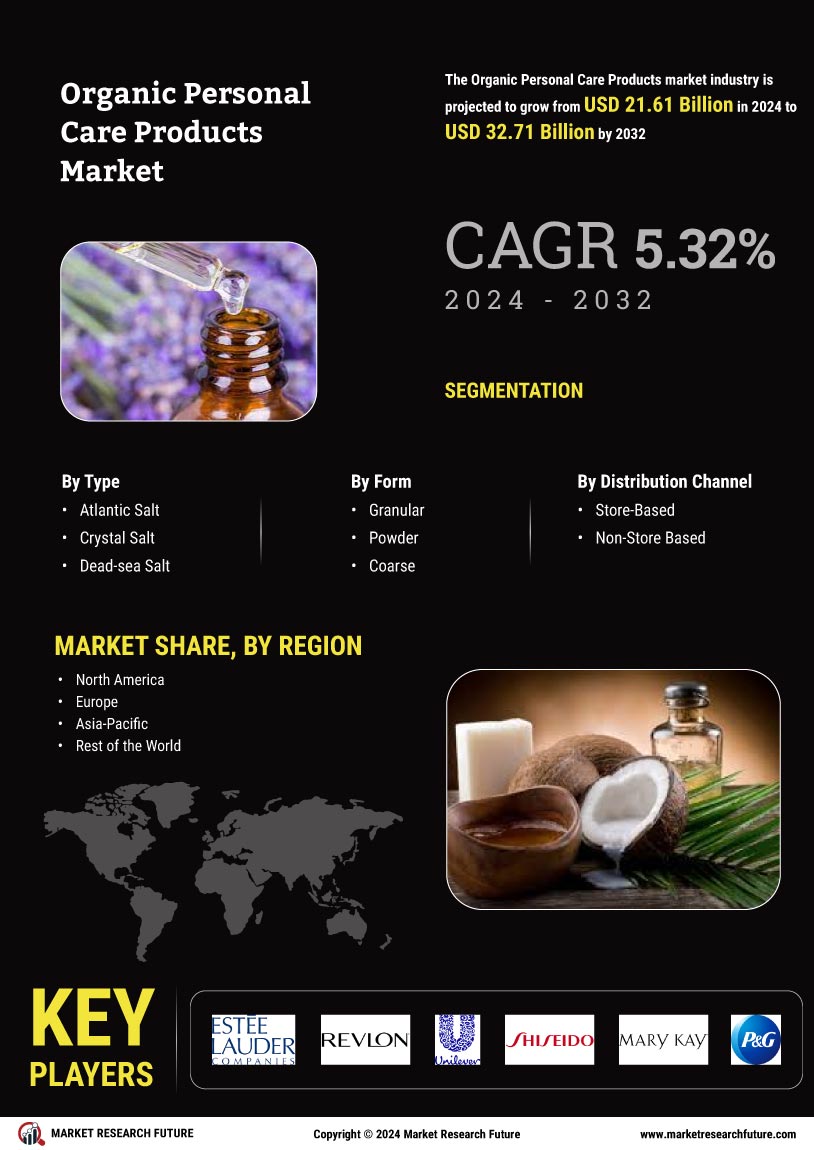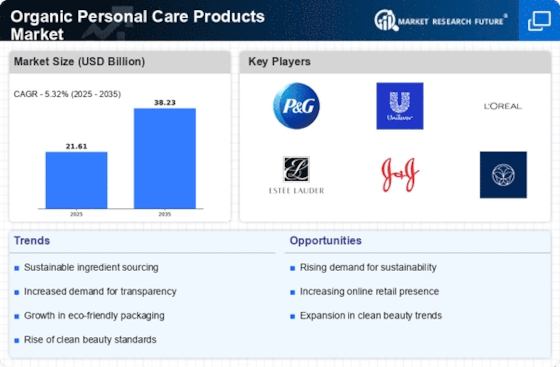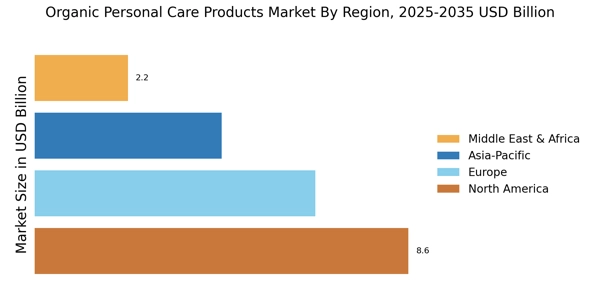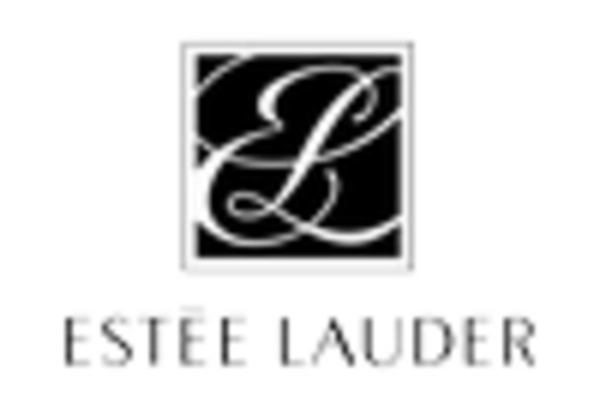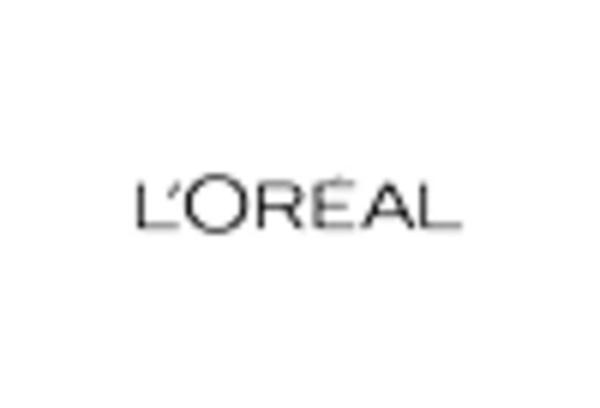Growing Awareness of Health and Wellness
The Organic Personal Care Products Market is significantly influenced by the rising awareness of health and wellness among consumers. As individuals become more conscious of the ingredients in their personal care products, there is a marked shift towards organic options that are perceived as safer and healthier. Market Research Future indicates that approximately 60% of consumers are willing to pay a premium for organic personal care products, reflecting a willingness to invest in their well-being. This trend is likely to continue, as educational campaigns and social media influence further inform consumers about the benefits of organic ingredients, thereby driving demand.
Increased Demand for Natural Ingredients
The Organic Personal Care Products Market experiences a notable surge in demand for products containing natural ingredients. Consumers are increasingly aware of the potential adverse effects of synthetic chemicals, leading to a preference for organic formulations. This shift is reflected in market data, indicating that the organic personal care segment is projected to grow at a compound annual growth rate of approximately 10% over the next five years. As consumers seek transparency in product labeling, brands that prioritize natural ingredients are likely to gain a competitive edge. This trend not only aligns with health-conscious consumer behavior but also supports the broader movement towards sustainability in personal care.
Regulatory Support for Organic Standards
The Organic Personal Care Products Market benefits from enhanced regulatory frameworks that promote organic standards. Governments are increasingly implementing regulations that require personal care products to meet specific organic criteria, thereby fostering consumer trust. For instance, certifications such as USDA Organic and COSMOS Organic are gaining traction, providing consumers with assurance regarding product authenticity. This regulatory support is expected to drive market growth, as brands that comply with these standards can differentiate themselves in a crowded marketplace. The establishment of clear guidelines may also encourage new entrants to invest in organic formulations, further expanding the market.
Emergence of Innovative Product Offerings
The Organic Personal Care Products Market is characterized by the emergence of innovative product offerings that cater to diverse consumer needs. Brands are increasingly developing unique formulations that combine organic ingredients with advanced technology, such as bioactive compounds and sustainable packaging solutions. This innovation is not only appealing to consumers seeking efficacy but also aligns with the growing demand for environmentally friendly products. Market analysis indicates that the segment for innovative organic personal care products is expected to expand by 15% in the coming years. As companies continue to invest in research and development, the market is likely to witness a proliferation of novel products that enhance consumer choice.
Influence of Social Media and Digital Marketing
The Organic Personal Care Products Market is increasingly shaped by the influence of social media and digital marketing strategies. Brands are leveraging platforms such as Instagram and TikTok to reach eco-conscious consumers, showcasing the benefits of organic products through engaging content. This digital presence not only enhances brand visibility but also fosters community engagement among consumers who prioritize sustainability. Market data suggests that companies utilizing social media effectively can experience up to a 30% increase in sales. As digital marketing continues to evolve, it is likely to play a pivotal role in shaping consumer perceptions and driving growth in the organic personal care sector.
